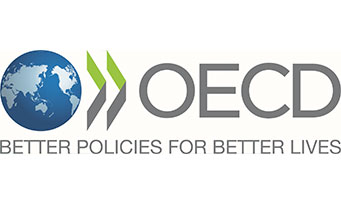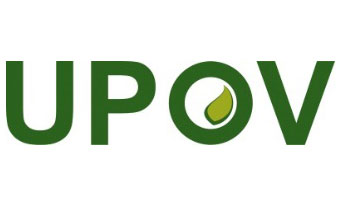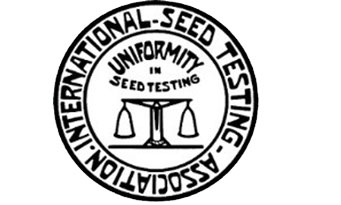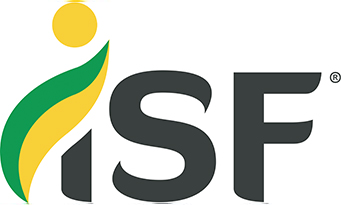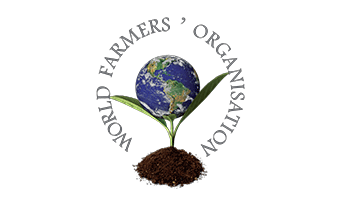Partner Profiles
The World Seed Partnership is host to a group of international organizations that closely collaborate on seed systems for sustainable agriculture. Below are short summaries and full profiles of participating organizations.
The Organisation for Economic Co-operation and Development (OECD)
Type of Organization
intergovernmental
OECD Seed Schemes
Participating countries
Mission
The OECD Seed Schemes provide an international framework for the varietal certification of agricultural seed moving in international trade. The Schemes were established in 1958 driven by a combination of factors including a fast growing seed trade, regulatory harmonisation in Europe, the development of off season production, the seed breeding and production potential of large exporting countries in America (North and South) and Europe, and the support of private industry. Membership of the Schemes is voluntary and participation varies. There are eight agricultural Seed Schemes.
Objectives
- to encourage the production and use of “quality-guaranteed” seed in participating countries. The Schemes authorise the use of labels and certificates for seed produced and processed for international trade according to agreed principles ensuring varietal identity and purity.
- to facilitate the import and export of seed, by the removal of technical barriers to trade by assuring identification and origin through internationally recognised labels (“passports”) for trade. They also lay down guidelines for seed multiplication abroad, as well as for the delegation of some control activities to the private sector (“authorisation”). The quantity of seed certified through the OECD Schemes has grown rapidly in recent years and now exceeds 1 million tonnes.
How do the Seed Schemes operate
The success of international certification depends upon close co-operation between maintainers, seed producers, traders and the designated authority (appointed by the government) in each participating country. Frequent meetings allow for a multi-stakeholder dialogue to exchange information, discuss case studies, revise rules and update the Schemes. A wide range of international and non-governmental organisations as well as and seed industry networks participate actively in the Schemes.
Benefits of the Schemes
- To facilitate international trade by using harmonised certification procedures, crop inspection techniques and use of control plots. The varietal purity standards for the appropriate species are also agreed and standardised by all member states.
- To provide a framework to develop seed production with other countries or companies.
- To participate in the elaboration of international rules for seed certification.
- To develop collaboration between the public and private sectors.
- To benefit from regular exchanges of information with other national certification agencies and Observer organisations.
The Annual List of Varieties eligible for OECD certification includes varieties which are officially recognized as distinct, uniform and stable, and possess an acceptable value in one or more participating country. The List contains the seed varieties internationally traded using the OECD seed Schemes. The number of varieties included has grown steadily over the last thirty years.
For more information, please visit our website.
International Union for the Protection of New Varieties of Plants (UPOV)
Type of Organization
Intergovernmental
Membership
List of UPOV members / Situation in UPOV
What is UPOV?
The International Union for the Protection of New Varieties of Plants (UPOV) is an intergovernmental organization based in Geneva, Switzerland. UPOV was established in 1961 by the International Convention for the Protection of New Varieties of Plants (the "UPOV Convention").
The mission of UPOV is to provide and promote an effective system of plant variety protection, with the aim of encouraging the development of new varieties of plants, for the benefit of society.
The UPOV Convention provides the basis for members to encourage plant breeding by granting breeders of new plant varieties an intellectual property right: the breeder’s right.
What does UPOV do?
UPOV’s mission is to provide and promote an effective system of plant variety protection, with the aim of encouraging the development of new varieties of plants, for the benefit of society. The main objectives of UPOV are, in accordance with the UPOV Convention, to:
- provide and develop the legal, administrative and technical basis for international cooperation in plant variety protection;
- assist States and organizations in the development of legislation and the implementation of an effective plant variety protection system; and
- enhance public awareness and understanding of the UPOV system of plant variety protection.
What are the benefits of plant variety protection and UPOV membership?
The UPOV Report on the Impact of Plant Variety Protection demonstrated that in order to enjoy the full benefits which plant variety protection is able to generate, both implementation of the UPOV Convention and membership of UPOV are important. The introduction of the UPOV system of plant variety protection and UPOV membership were found to be associated with:
(a) increased breeding activities,
(b) greater availability of improved varieties,
(c) increased number of new varieties,
(d) diversification of types of breeders (e.g. private breeders, researchers),
(e) increased number of foreign new varieties,
(f) encouraging the development of a new industry competitiveness on foreign markets, and
(g) improved access to foreign plant varieties and enhanced domestic breeding programs.
In order to become a UPOV member the advice of the UPOV Council in respect of the conformity of the law of a future member with the provisions of the UPOV Convention is required. This procedure leads, in itself, to a high degree of harmony in those laws, thus facilitating cooperation between members in the implementation of the system.
For more information, please visit our website.
International Seed Testing Association (ISTA)
Type of Organization
Non-profit and non-political association
ISTA Profile
ISTA is an international association that represents the seed quality sampling and testing organizations and laboratories at the world level.
ISTA Members
Mission
ISTA was founded in 1924 with the aim of developing and publishing standard procedures in the field of seed testing. ISTA members work together to achieve their vision of uniformity in seed quality evaluation worldwide.
Core tasks
- Development and maintenance of the ISTA International Rules for Seed Testing
The International Rules for Seed Testing (ISTA Rules), adopted and updated on an annual basis, today contain seed sampling and quality analysis methodologies for more than 900 different agricultural, forest, vegetable and flower species. The ISTA Rules are reviewed and updated on an annual basis by 18 technical committees. The technical committees comprise seed scientists and technologists from the public and the private sectors from all over the world. - Accreditation of seed testing laboratories worldwide
The ISTA accreditation program ensures that seed testing laboratories achieve accurate and reproducible results in their daily analysis work. The basis for the accreditation programme is the ISTA Accreditation Standard. Every third year, an accredited laboratory is audited by two ISTA auditors. Monitoring of laboratory performance through the ISTA Proficiency Test Programme ensures that the quality of ISTA-accredited laboratories remains high between audits. Each year between five and ten workshops, run by the technical committees, provide training and professional development for seed analysts. - Distribution of uniform certificates of seed-testing results to facilitate international seed trade
Only ISTA-accredited laboratories are authorized to issue ISTA Certificates for seed analysis. The ISTA certificates provide the user with a seed analysis result they can trust is reproducible, true and, and for the Orange International Seed Lot Certificate represents the quality of the seed lot from which the sample tested was drawn. - Exchange and dissemination of results of scientific research in various seed symposia, seminars and scientific journals
ISTA serves as a platform for seed scientists around the world to compare the results of their research and discuss important developments in seed science and technology, through both regular seed symposia and its own scientific journal, Seed Science and Technology.
For more information, please visit our website.
International Seed Federation (ISF)
What is ISF?
ISF is a non-governmental, non-profit making organization that represents the interests of national seed associations and seed companies at a global level. Established in 1924, the International Seed Federation has more than 7500 members in 70 countries today. Working in partnership with organizations responsible for international treaties, conventions and agreements and those that shape policies that impact the seed industry, ISF ensures that the seed industry speaks with one voice.
Vision & Mission
- Vision: “A world where the best quality seed is accessible to all, supporting sustainable agriculture and food security.”
- Mission: “To create the best environment for the global movement of seed and promote plant breeding and innovation in seed.”
Objectives
ISF’s strategic objectives are set out in its 5-year Strategic Plan, and relate to the core areas of its work.
1. Innovation
To move towards more consistent policies for products developed through the latest plant breeding methods to enable their use and to ensure uninterrupted trade.
2. Movement of Seed & Quality Seed
- To promote the harmonization of technically and scientifically justified frameworks for phytosanitary measures and to prevent them becoming non-tariff trade barriers.
- To promote the harmonization of regulations governing seed applied technologies at global and regional levels.
- To promote the use of seed certification schemes and seed quality assurance systems.
3. Intellectual Property Rights
- To facilitate cooperation between countries in order to simplify procedures for plant variety protection at an international level.
- To support members in implementing effective intellectual property rights in their countries.
- To promote the International Treaty as the preferred tool to administer Plant Genetic Resources for Food and Agriculture (PGRFA), making the process more business-oriented and user-friendly.
4. Biodiversity
- To promote the International Treaty as the preferred tool to administer Plant Genetic Resources for Food and Agriculture (PGRFA), making the process more business-oriented and user-friendly.
5. Engagement
- To engage with our members to strengthen cooperation so that the seed industry speaks with one voice.
- To engage with all stakeholders in the value chain to foster cooperation.
- To raise awareness and build understanding of the seed industry and the benefits it brings to a global society.
What does ISF do?
- ISF facilitates the free movement of seed within a framework of fair and science-based regulations, whilst serving the interests of farmers, growers, industry and consumers.
- ISF promotes the establishment and protection of intellectual property rights for seeds, plant varieties and associated technologies.
- ISF publishes rules for trading seed and licensing technology to clarify and standardize contractual relations between buyers and sellers at an international level.
- ISF provides for the settlement of disputes through mediation, conciliation and/or arbitration.
- ISF fosters cooperation and collaboration through its calendar of events, enabling seed industry stakeholders to identify issues, stimulate strategic thinking and accelerate the adoption of common positions.
- ISF works in partnership with organizations responsible for international treaties, conventions and agreements and those that shape the policies affecting the global seed industry.
For more information, please visit our website at www.worldseed.org.
World Farmers’ Organisation (WFO)
What is WFO?
The World Farmers’ Organisation (WFO) is an international member-based Organisation whose mandate is to bring together Farmers’ organisations and agricultural cooperatives from all over the world, representing Farmers at the global level. Global level is entended in it’s a) geographical meaning, as WFO represents Farmers from all over the world, b) scale: small, medium and large-scale Farmers, c) business model and d) sector of agriculture, including: traditional agriculture, livestock, feedstock, breeding, fisheries, forestry. Its membership includes about 80 member organisations from 54 countries and is constantly growing.
What is its mission?
The mission of the World Farmers’ Organisation is, by being the renowned representative international Farmers’ organisation advocating Farmers’ interests, to let the world Farmers’ voice be heard, expressed by Farmers at the world stage on the most relevant and common issues affecting Farmers worldwide now and in the future.
What is its vision?
The vision of WFO is to foster the economic viability of farming activities, aimed at improving the livelihood conditions of Farmers, their families and the rural communities they work and live in and strengthening the contribution of the farming community in tackling the challenges mankind faces.
Which are the issues WFO is focused on?
Since the Organisation’s establishment in 2011, WFO members have prioritized three areas of work that have been the pillars of WFO engagement in the global political arena on Agriculture: Food Security, Climate Change and Value Chain. These three areas are wide enough to include several other areas of work that have been of interest for the WFO throughout these years: Women, Youth, Livestock, Fisheries, Biodiversity, Finance, Innovation, Agricultural Equipment, Energy, Infrastructure and Education.
- Climate Change: Farmers are key drivers in the development of sustainable agricultural practices that provide food and renewable materials for their families, communities and markets. The promotion of Climate-Smart Agriculture is one of the pillars of the WFO Policy on climate and WFO has supported the creation of the Global Alliance on Climate-Smart Agriculture.
- Food Security: Thanks to WFO advocacy work in 2016 a temporary ad hoc seat for the Farmers’ constituency has been established in the Advisory Group of the Committee on World Food Security. WFO will keep working tirelessly to make this seat a permanent one and will keep advocating for a sustainable agricultural sector, with farmers at the centre of the stage.
- Value Chain: WFO is strictly committed to addressing issues related to the value chain – to take farmers’ voice to the most important political fora and ensure that the agri-food system operates in an open, fair and balanced manner.
- Trade: WFO is committed to facilitate a fair and sustainable trade system for agriculture and for the recognition and valorisation of the uniqueness of this sector.
- Women in Agriculture: WFO recognizes the pivotal role of Women Farmers and advocates for their empowerment. WFO’s work focuses on strengthening the capacities of Women Farmers through their full and active participation in Farmers’ organisations, in decision-making bodies and in WFO activities. It also established an International Committee for Women encourages and fosters solidarity and cooperation among Women and Men Farmers.
- Livestock: Livestock farming and animal health are extremely important in contributing to global sustainable food security and WFO promotes a multi-stakeholder and multi-sectorial approach to achieve this goal.
- Cooperatives: Cooperatives enable producers to realize economic benefits that they could not otherwise achieve alone, that’s why WFO joined COPAC (the Committee for the Promotion and Advancement of Cooperatives) in 2012, an advocacy platform through which members implement advocacy actions aimed at improving the political support to agricultural cooperatives.
- Young Farmers: WFO recognizes the right of all Young Farmers to be agropreneurs and promotes policies aimed at ensuring generational renewal, promoting equal opportunities to access to finance, markets, value chain, information, education, land and involving Young Farmers in decision-making.
- Innovation: WFO is advocating for a proper recognition of the importance of Farmers’ access to innovation through the most relevant international fora.
- Contract Farming: WFO joined UNIDROIT, FAO and IFAD for the preparation of a Legal Guide on Contract Farming which intends to provide soft guidance and an internationally-recognized reference with a fair and balanced approach against which contract practices and relevant public policy instruments could be addressed.
For more information, please visit our website.


